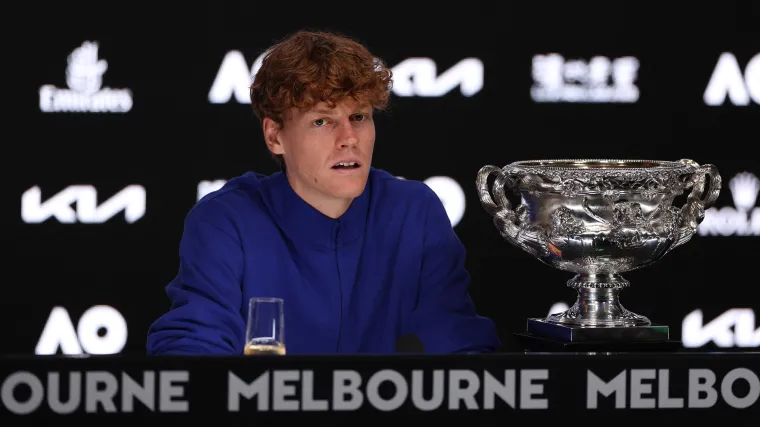Jannik Sinner began his bid for a maiden Wimbledon title against Luca Nardi on July 1, storming to a straight sets victory over his Italian compatriot.
Sinner is the current world No. 1 men’s player, the top seed and among the favourites for glory at SW19.
The 23-year-old made it back-to-back grand slams when he followed his 2024 US Open triumph with an imperious march to glory at this year’s Australian Open.
A bid for three in a row came up agonisingly short when Sinner was the victim of a sensational comeback from Carlos Alcaraz in the 2025 French Open final — a match that gave plenty of indications that the Alcaraz-Sinner rivalry can take up the mantle from the Federer-Nadal-Djokovic era.
Sinner’s run to the final at Roland-Garros was all the more remarkable given he barely played any tennis in the three months between Melbourne and Paris.
However, the reasons for that absence have cast a shadow over one of the sport’s most exciting young stars.
MORE: Alcaraz and Sinner’s incredible 2025 French Open final as it happened
Why was Jannik Sinner banned from tennis? Doping suspension explained
Between February 9 and May 4 this year, Sinner served a three-month ban handed down by the World Anti-Doping Agency in relation to two positive tests for clostebol taken in March 2024.
Clostebol is a steroid that can be used to build muscle mass.
The suspension mostly filled the gap between his Australian Open triumph over Alexander Zverev on January 26 and the start of the French Open on May 19.
The WADA code states that athletes should be banned for four years if they intentionally take a banned steroid.
The reason for Sinner’s relatively short ban, considering his offence, was a settlement with WADA, which had appealed to the Court of Arbitration for Sport (CAS) against the International Tennis Integrity Agency’s (ITIA) decision not to ban the player.
Sinner denied any intentional wrongdoing after explaining the substance had been applied inadvertently by physiotherapist Giacomo Naldi, who had been using a product containing clostebol to treat a cut on his own hand.
WADA accepted that Sinner did not intend to cheat and derived no performance-enhancing benefit, adding that a three-month suspension was appropriate to the “unique set of facts in this case.”
MORE: Wimbledon results 2025: Updated scores, bracket for men’s and women’s tennis singles
Jannik Sinner doping ban criticism
Sinner said he considered walking away from tennis during his doping case, claiming players looked at him “differently” during the 2025 Australian Open and that he “didn’t feel comfortable”.
It’s certainly true to say that public sympathy for Sinner from the tennis community was in short supply.
Speaking to Time magazine, Serena Williams said: “I love the guy, I love his game. He’s great for the sport. I’ve been put down so much, I don’t want to bring anyone down. Men’s tennis needs him.
“[But] if I did that, I would have gotten 20 years. Let’s be honest. I would have gotten grand slams taken away from me.”

Three-time grand slam winner Stan Wawrinka said he “did not believe in clean sport anymore” in response to the Sinner case, while former British No. 1 Tim Henman called the three-month ban that did not bar the Italian from any majors “too convenient”.
“I don’t want to respond to criticism. People are free to say what they want and judge people,” Sinner added in remarks given prior to his return action at the Rome Masters, where he was also beaten in the final by Alcaraz.
“What matters to me is that I know what I’ve been through. It was difficult and I wouldn’t wish anyone to go through that as an innocent person.”
Read the full article here



